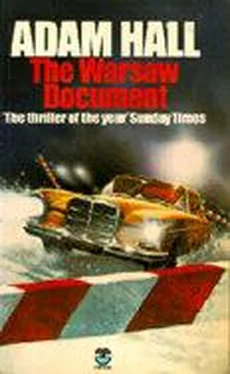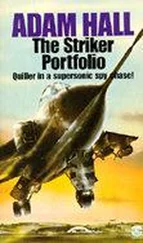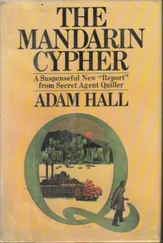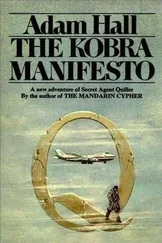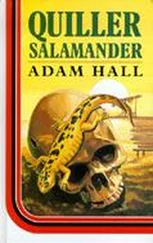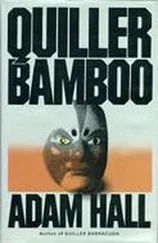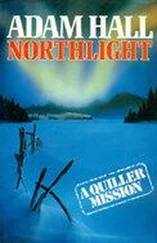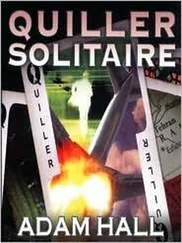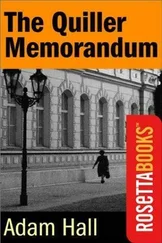Do it now or stand here like a bloody fool because you think there isn't time, sorry about that, old boy, don't let him say it, do it now.
'Come on then, we're in a hurry!'
'Been quick as I could.'
'Let's have it then.'
Sweat on the palms wipe it off.
The cupboard was small but not small enough for me to use a foot on each side of the side walls and I had to brace them both against the wall in front of me with my back pressed to the one behind but the chimneying action would be just as efficient and I began when they put the end of the crowbar into the jamb and started prising with it. Sound-factor to my advantage, their greater noise covering mine. Splinters were coming away. Unknown datum was the exact height of the ceiling but I knew it was at least thirteen feet, shoulder-height plus arm's length plus handle of broom and therefore six feet higher than the top of the door.
Press. Slide. Press.
'It's coming.'
'Give me a bit of room, then.'
The door was shaking but the sound was below me now… a crackle of splitting timber.
Back-muscles signalling strain, ignore, the body will do what you mean it to do when it senses you won't take refusal. Press. Press harder.
'This time.'
Shoulders on fire, nerve-lights flashing under the lids. Harder. Higher. Press…
Explosion of sound as the lock went, the door banging back.
Stop.
Flood of light below but here I was in gloom. 'All right.'
'Wasted our time.'
'No, we had to make sure.'
I listened to their boots, to the echoes fading. When it was silent I came down.
I gave them one hour.
The cadre left in place at key points would probably comprise special M.O. patrols with a handful of Policia Ubespieczenia manning the public exits, civilian dress.
I must go but the hazard was critical: they knew my image, knew that I was now bareheaded.
A train had been through and some people had come into the washroom and it wouldn't have been difficult to talk one of them into selling he his kepi but that would have been fatal. They'd have stopped him at the exit, where is your hat, I sold it to a man in the Toaleta. Fatal.
But I had to go now and take the hazard with me.
It was quiet here. Distant sounds: shunting in the freight area, voice on the P.A. system, background of street traffic.
I went into the subway and turned left for the nearest staircase and we met face to face at the comer because the sound of his footsteps had been covered by my own.
He was one of Foster's men.
It worried me because he ought not to be down here in the subway: an hour had been quite long enough for half a brigade to deal with the station area and the main search should have been called off by now, leaving only the exits under observation. He shouldn't be so close to the centre as this and I didn't like it. I couldn't see where I'd made the mistake.
Then I got the answer and it was very simple: he was in fact manning one of the peripheral points but had needed to come down to the lavatory. It was reassuring to know I hadn't made a mistake.
I knew he was one of Foster's men because his face showed immediate recognition: my image was the known image and he was responding by reflex. His actual features didn't mean anything to me but he had a brown leather coat on and I'd seen that two of them had been wearing coats that colour.
He was going very fast for his gun but I had to wait because if I engaged right away the thing would have to stay where it was and he'd be able to get at it later if I got into an awkward position and I didn't want that to happen.
He had the eyes of an Alsatian in the instant of attack, wide open and with the pupils dark and enlarged, the gold irises glittering: his teeth were bared and this too gave him the look of a trained killer dog. Even so he appeared to need his gun and I had to wait several fractions of a second before it was in his hand.
At close quarters a gun is highly dangerous. The danger is present before it leaves the holster, since it gives a feeling of power, of superiority, thus leading to false confidence and the impression that no serious effort has to be made, that the conflict has already been won. The danger increases tenfold once the gun is in the hand because only one hand is left free for useful work; at the same time the psychological danger remains present: it is felt that the mere sight of the gun will intimidate the opponent to the extent of rendering him powerless, quite incapable of movement. If, at this stage, the opponent decides to move, the danger becomes so great that it dominates the situation and can no longer be averted. The simple act of moving confounds the strongly held belief that no movement will in fact be made, and the surprise has the proportions of severe psychological shock.
Kimura's first rule is grilled into new trainees until they're sick of it but later it saves their lives: when threatened by an armed man, do nothing until he comes into close quarters.
It's usually easy enough because he likes to frisk you and then you can go to work. In this case I was lucky because we'd walked into each other and the distance was perfect. The gun was in his hand but that was all: his index hadn't settled inside the trigger guard and he was nowhere near horizontal aim. In another tenth of a second I would have had to use the routine deflection drill designed to get the body clear of the bullet but I didn't wait for that because the noise would alert the nearest patrols.
I chopped upwards against the wrist-nerve and the force swung him partly round as the gun spun high and hit the glazed tiles of the ceiling and that was all right but he was already hooking for a kite blow and I knew I'd been wrong: he hadn't been relying a hundred per cent on his gun — he'd just thought it might be the most convenient way.
I went down first and he dropped and tried for the throat so I used the knee and he rolled and corrected and I thought it was probably kaminari, a bastardised form of kung fu, because he got very busy and couldn't relax the tensions so it was easy until the speed of the blows began foxing me and I had to go for a straight classic hand-edge for the shoulder hoping to numb and not succeeding the first time and not getting the chance to do it again because he was on to it and pulling clear and coming in again with a series of horribly fast kites that burned at the muscles while I hooked at what I could reach: windpipe, groin, plexus, trying for blows and then for locks and not getting them as I should.
Specialised disciplines are effective within their range but none of them are flexible enough: their patterns are too formalised. Pure karate can stop any amateur attack because it has the answer to every move in the book but there are one or two others and some of the kaminari blows have never been fully understood in the West so that an element of the unknown enters the conflict and there's no time to rethink on the established techniques because this form of attack is tense and fast and accumulative: the aim is to break down the opponent before he's had time to work for any kind of finalising strike or lock.
That's why karate has never been taught at Norfolk. They teach something different there.
I still couldn't use it. His energy was appalling and the blows came chopping wickedly fast for the vulnerable points and I knew that if I left only one of them unprotected for a half-second he'd be in there and finish me. His attack was animal: I couldn't believe that this creature could ever, short of killing it, be tamed; or that, once tamed, it could speak or write with a pen in a human hand. His breathing was like a wolf's, his frenzy producing grunts through the teeth and nostrils, a bestial snuffling, and somewhere in my mind there was surprise that these weren't claws ripping at me, that I touched no fur. Yet his blows were infinitely disciplined.
Читать дальше
